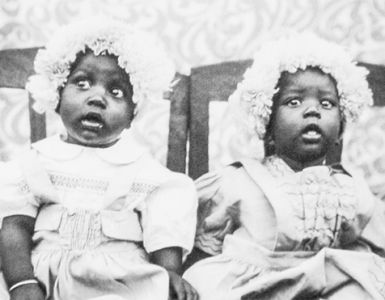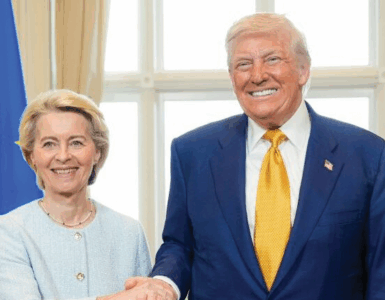IMMORTALISED: Forty six years after his death, on his centenary year, Sobukwe’s message on decolonisation and Africanisation, still stands…
By Jo-Mangaliso Mdhlela
Can you imagine Robert Mangaliso Sobukwe, at the height of the Verwoerdian apartheid era in the mid-1950s riding in a packed-to-the rafters third class South African Railways coach, headed to Wits University, where he was a lecturer.

Why would Sobukwe, a relatively well-paid Africanist, be seen travelling in a third-class coach from Dube train station in Soweto to Park Station in Johannesburg, when it would have been more convenient and comfortable to drive in his own car to the lecture room in Braamfontein?
The answer is simple: Sobukwe was an Africanist who valued the importance of being in touch with ordinary folk trying to make sense of a myriad of injustices facing Africans. Sobukwe was there to make himself available, not in swanky hotels, but in ordinary places to share the pain of injustice and exclusion with other suffering Africanists.
It was Joe Thloloe, the Africanist, journalist, and editor, and former trade unionist, the great admirer of Sobukwe’s leadership and humanity – who, more than a decade ago, in an interview for a newspaper article, related this bit to me about Sobukwe – whom he described as a true leader who would, at the Park Station’s concourse in Johannesburg, “steal time” and “take time” to play a game of morarabara with the working class, some of whom formed part of Sobukwe’s political constituency of the Pan Africanist Congress of Azania (PAC), a political party he co-founded with his Africanist comrades.
Thloloe, detained under section 6 of the Terrorism Act in 1977, to his greatest horror, only learned about Sobukwe’s death – a friend and mentor and fellow Africanist – a long while later after his death in 1978 as he was detained in solitary confinement in Howick, KwaZulu-Natal, with no access to reading material.
As if that were not enough, Thloloe was boastfully told by his apartheid captors and tormentors, long after Steve Bantu Biko had been killed by the police, “Do you know what has become of your friend?”
The callous captor, showing Thloloe an old newspaper cutting, says to him, “See your friend, Biko, has died.”
Now many years later, Luvuyo Mthimkhulu Dondolo, an academic, has spent a considerable time reflecting on the life and times of Sobukwe, a man fondly known as the Prof, dearly loved and admired by Thloloe, and revered by many across the political divide, even if only for his political erudition and warmth of heart to both political adversaries and those who subscribed to his ideology of Pan-Africanism.
Sobukwe lived for a greater ideal – the desire to infuse into the consciousness of all who subscribed to Pan-Africanism the “African epistemic justice, Africa-centred thinking, the decoloniality project, and the growing desire for the establishment of Afrocentric centres in universities aimed and the notion of re-Africanisation”.
The book, One Race: The Legacy of Robet Mangaliso Sobukwe, published by the Skotaville Academic Publishers which is headed by editor-in-chief, Mothobi Motloatse, serves as a tribute to “the son of the soil”, who died some 46 years ago on February 27, 1978.
Lauded by the great Africanist minds, Sobukwe has been described by his Africanist peers and founding member of the PAC, John Nyathi Pokela, among others, as a dynamic leader whose apartheid enemies wished him dead because of the strong pull he engendered among his African followers.
Said Pokela of him: “From the day Sobukwe launched the campaign against the Pass Laws, it was clear the alien settler pronounced the verdict of systematic death on him.”
Why would the apartheid regime be as scared as it was of Sobukwe, is a question answered by John Vorster, then minister of justice, who suggested it would have been better if Sobukwe were to be put in prison “for eternity”, which would have meant he would be incarcerated until the end of his life, using Clause 4 of the General Law Amendment Act of 1963, or what was then colloquially and infamously known as the “Sobukwe Clause”.
The book, launched yesterday in Johannesburg, also seeks to question deliberate attempts in some political quarters to play down or diminish Sobukwe’s importance in the country’s political landscape – and the role he played in the prosecution of the liberation struggle.
In the forward penned by Prof Kwesi Kwa Prah, he writes: “Dondolo’s volume is a labour of love. It distinctively helps to rectify the voluntary and involuntary muzzling of the memory of Sobukwe.”
It was Dondolo’s curiosity, and concern, that prompted him to embark on a long, and winding journey, piecing together the ideas of Sobukwe in a volume, because, in his mind, he feared “the Sobukwe phenomenon – his ideas, momentous contribution, conceptual, analytical, and strategic pointers” were ignored and not “examined in any scholarly manner”.
The book will cause many in the multi-sided political aisle to reflect on the political world Sobukwe, through his work, populates, and his Pan-Africanism political template conceived by Africanist philosophers – a world that seeks to denounce “captured black political leadership”.
Kwesi Prah says: “One of the conspicuous features of the South Africa’s post-apartheid political history is the relative muteness, intellectual aloofness and neglect of the history and significance of Robert Mangaliso Sobukwe.
“Given his towering political stature, outstanding contribution, and decisive role in setting up the Africanist agenda for [the] South Africa’s future, it is astonishing that so little is discussed about his life, work, and ideas.
“The apartheid regime did its utmost to impose and enforce statutory silence about Sobukwe. But, like cork pushed under water this was strategically and impossible mission.”
The book explores in detail a recurring theme, which is a quest for solidarity and unity extended to all Africanists and embodied in the expression, Zenibeyi Mbumba yamaNyama, which has since time immemorial become a rallying cry calling for unity among Africanists, not on the basis of ethnicity, but more of embracing the values of Pan-Africanism, at the time, in the words of the author, “When South Africa was at a crossroads of colonialism, wars of land dispossession, transculturation, and resistance against European settlers’ conquest at different levels”.
And so, further argues the writer, the Zenibeyi Mbumba conception “is a seminal statement” designed to plant a seed for the modern model of Pan-Africanism.
The writer argues the unity informed by Pan-Africanism is “an important weapon for race consciousness, collective identity, epistemic and historical justice, and for the definition of self, as well as against colonialism, slavery, and apartheid”.
Pan Africanism, as embraced by the Africanists, represents a struggle for self-determination, and should always be seen as all-embracing strategy designed to bring together all tendencies that seek to strengthen ties of unity across the Africanists political landscape in the Continent and the diaspora.
Dondolo, in writing this long historical treatise about the man whose mission was to propagate the notion of the creation of one race, which is a human race.
Yet, Sobukwe’s assertion should not suggest that the slogan “Africa is for Africans, should not be seen as a contradiction to the ideal of one race, but more as an attempt to underscore what Kwame Nkrumah, the first president of the decolonised Ghana, proffered that “cultural and linguistic diversities are by no means inconsistent with political unity”.
For his part, Sobukwe, while propounding the idea that “Africa is for Africans”, he also, in the same breath, holds that while it remains valid for Africa to be for Africans, it is also true that Africans ought to be concerned about the value of being human for the sake of God, or goodness.
Sobukwe went beyond looking inwardly. He expanded the horizon of his Africanist philosophy to include all humanity, inculcating the concept that being human should also define the Pan-Africanist ideal of goodness and justice in a broader context which is inclusive of all humanity.
Sobukwe added: “This reminds us that our liberation cannot be complete without the contribution of the African people to humanity, with our own philosophy and ideology of understanding our reality.”
How did Sobukwe’s Pan-Africanism relate to communism?
The author answers the question in the following way: “Sobukwe bitterly opposed the communist’s political tendencies and the outsourcing of the struggle for oppressed Africans to white Communists,” also, dismissing the “pseudo-communist in South Africa as quacks and careerists who were prone to vacillation in their positions in line with the demands of their ideological overlords in Moscow”.
Sobukwe avers “the struggle in South Africa is part of the greater struggle throughout the continent for the restoration to the African people of the effective control of their land”.
He adds that “the ultimate goal of our struggle is the formation of a United States Africa”.
For Sobukwe, African Nationalism, spiced with Africanists philosophy, must become the only liberatory creed that could “weld masses who are members of heterogeneous tribes into a solid discipline and a united fighting force, providing them with a loyalty higher than that of the tribes, and giving formal expression to their desire to be a nation.”
The clear and unambiguous Africanist message is carried out in the words of Anton Lembede, who with Sobukwe as leaders of the Africanist-inclined ANC Youth League, were firebrand and great propagandists for African Nationalism, said: “Africans should not import foreign ideology from the West that does not fit into their culture. The Youth League, therefore, aimed at evolving an ideology for Africans, and this would be neither capitalism nor Nazism, neither socialism, nor communism, but Africanism.”
For the sake of completeness, the author also delves extensively on the role played by the Africanist struggle for liberation, with Sobukwe making it clear that within the Pan-Africanist movement women should not be footnotes to the main text, nor should they be neglected”.
Addressing the Basotholand African Congress in Lesotho in 1957, two years before the formation of the PAC when the Africanists within the ANC left in 1958 to form their own Africanist-oriented political organisation.
This is what Sobukwe told the congress: “We fight for the recognition of the Mosotho man and woman to be equal to any other man or woman of whatever race and creed, capable of taking his place alongside any other man or woman to plan a future for mankind…”
In a nutshell, this, among other topics, is what Dondolo’s seminal book, One Race: The legacy of Robert Mangaliso Sobukwe, offers. Riveting reading, it makes invaluable contribution to placing Sobukwe as one of the most pre-eminent contributors to the liberation struggle in seeking to create an Azania in which the Africanist philosophy plays an important part to welding together all the people of the country to achieving greatness in the land of their birth.
• Mdhlela is an independent journalist, an Anglican priest, ex-trade unionist, and former editor of the South African Human Rights Commission journalist


































